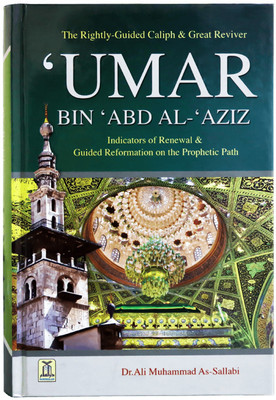Umar Bin `ABD Al-AZIZ(Hardcover, Dr.Ali Muhammad As-sallabi)
Quick Overview
Product Price Comparison
Umar ibn Abd al-Aziz (also spelled Umar ibn Abdul Aziz or Umar II) was an Umayyad caliph who ruled from 717 to 720 CE. He is often referred to as the "Fifth Rightly Guided Caliph" due to his reputation for just governance and adherence to Islamic principles. His reign is considered a short period of reform and revival within the Umayyad dynasty.Umar ibn Abd al-Aziz was born in 682 CE and was a great-grandson of the Umayyad Caliph Umar ibn al-Khattab (the second caliph of Islam). He became caliph during a time of political and social turmoil in the Umayyad Caliphate, with widespread corruption and disregard for Islamic values among the ruling class.During his short reign, Umar ibn Abd al-Aziz implemented several reforms aimed at rectifying the injustices and excesses that had become prevalent in the society. He reduced the power and privileges of the Umayyad elite, limited extravagant spending by the ruling class, and made efforts to ensure fair and just treatment for all citizens. He also worked to improve the administration of justice and promoted the teachings of Islam.One of his most significant reforms was the redistribution of land and wealth to address economic disparities. He ordered the return of properties that had been unlawfully acquired by the ruling class, and he allocated these properties to the rightful owners. This move earned him praise for his commitment to social justice.Umar ibn Abd al-Aziz's reign was cut short when he died in 720 CE, possibly as a result of poisoning. Despite the brevity of his rule, his legacy continued to influence later generations. His emphasis on justice, compassion, and adherence to Islamic principles has made him a revered figure in Islamic history. Many historians and scholars consider him a model of an ideal Islamic ruler who sought to govern according to the principles of justice and equity.


